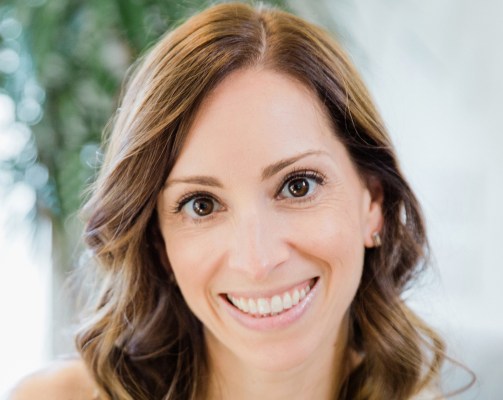Fuel Capital General Partner Leah Solivan joined us at TechCrunch Early Stage 2021 to talk about how to avoid early mistakes in building your startup. Solivan has ample experience on both sides of the fence, as she founded TaskRabbit and led it to exit through an acquisition by Ikea in 2017. She shared a list of 10 things to avoid in total, but here are some highlights of what to watch out for.
Share your ideas freely
Solivan urged founders to not be shy about sharing their ideas, as some people can tend to be secretive about their startup concept. The notion that giving up your idea somehow means you’ll end up with more competition is not a legitimate concern in the end, Solivan said. Instead, sharing that idea with as many people as you can is much more likely to generate positive results than negative.
I can’t tell you how many times I would be giving a presentation. And someone after the presentation would come up to me and say, oh my goodness, I had this same idea for TaskRabbit, like 10 years ago. And I’d be like, great! What did you do with that idea? And I think the point is, is that the idea itself isn’t the magic — the magic is in the execution of your idea and actually turning that idea into a business. (Time stamp: 01:42)
- You might just have missed the best time to sell your startup
- 15 things founders should know before accepting funding from a corporate VC
Take everyone’s advice, but make the call
Another tip Solivan shared was to take conflicting advice, even though it seems contradictory to listen to two advisors or investors telling you very different things. She said that even though people who individually are incredibly smart can give seemingly incompatible advice, it’s ultimately the role of the founder to integrate their perspectives and arrive at the right decision for their company.
I think what I realized over time was that no one knew my business like I did. And no one could ever make the calls that I needed to make. And so it was my job as the founder to take all of this conflicting advice. And then to make the call and make the decision and be confident about that decision myself. (Time stamp: 03:10)
Always ask for your next intro
Solivan encouraged founders to always be looking to get connected with someone else who may be able to help them, and leverage their existing network to make that happen. People are typically happy to come up with other avenues that may be helpful to you, she said, pointing to an instance when she was founding TaskRabbit and was connected with Zipcar CEO Scott Griffith through a friend at IBM, who then connected her with John Zimmer, one of Lyft’s co-founders.
My advice is, whenever you’re networking, when you’re building relationships, say you get a meeting with someone — at the end of that meeting, always ask them: Who else should I talk to? Is there someone else in your network you think that could be helpful to me or that I could chat with? (Time stamp: 05:28)
Stay close to your customers early on
While the temptation at a tech company is often to automate things to minimize the amount of manual work required to get up and running, Solivan recommended doing things that don’t scale early on, and using that as an opportunity to form a deep understanding of your customer and their needs. This will pay dividends once you do automate those processes later on, she said.
In the early days, it’s really important to understand your customer; your customer needs. And really, I believe the only way to do that sometimes is just to do it yourself. I was the very first Tasker in Boston. I was on my little scooter running around Boston doing jobs, because I needed to understand how the logistics of this marketplace was going to work. When we thought about bringing on a whole group of taskers, you know, you might think we were like, oh, we’re gonna have to figure out how to automate this process, and we’re gonna have to build code and processes around it. But in the very beginning, we needed to do everything manually. The first 30 taskers that joined the site, I interviewed them myself over coffee in a coffee shop. I spent 30 minutes with each of them, because I needed to understand what they were looking for out of the site and service; who they were as people; what were their profiles; what were their priorities. (Time stamp: 16:07)
You can read the entire transcript here.
You can also check out other sessions from Early Stage here.
